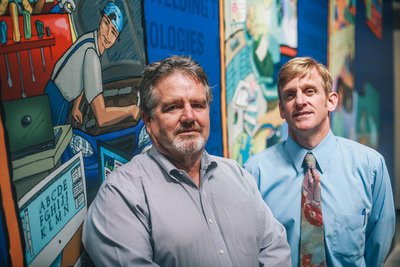
Many obstacles can stand in the way of kids finishing high school and young adults going to college, but the 4J School District’s Early College and Career Options (ECCO) is out to give them both opportunities. The non-traditional school with an enrollment of 180 will be stationed within Lane Community College’s Regional Technical and Early College Center beginning this fall, giving people with a variety of disadvantages the chance to get their GEDs and move on to college.
Deron Fort, director of High School Connections at LCC, is supportive of its shift from the former Parker Elementary School to the LCC campus, believing it to be a great experience for students in need. “The early college concept was not designed to give the highest achieving students the college experience,” he says. “There are other ways that those students get those experiences. The early college concept was really to try to capture those kids that don’t often make it. They can, they have the ability to make it, but they don’t, for a variety of reasons that are out of their control.”
ECCO serves age 16-and-over homeless students, teen parents and anyone else in economically dire situations, while allowing them to get a free education and more than just a feel for the college environment. “Every day, they can learn what their options are beyond high school,” Fort says. “When you are in an early college environment you are seeing it right there.” Through ECCO, students get access to teachers who associate with LCC’s professors and to all of the resources the campus has to offer.
Additionally, ECCO’s transition to LCC gives students a more uplifting view of their current situation, allowing them to immerse themselves in a college culture instead of walking down the halls of a school built for younger kids. It is, Fort says, “the end result of a consolidation of alternative high schools in Eugene.”
Fort foresees that students who take high school level classes through ECCO will graduate and remain at LCC for their college coursework. “That is the expectation,” he says, “that students complete their requirements for a diploma, continue on and do a year at Lane, and we all work very hard to motivate those students to continue on that year as well.”
Brad New, the principal of this consolidation, echoes Fort’s goals and his mindset towards ECCO. “One of the key pieces to the early college model is being on the community college campus,” he says, “and students being able to see themselves as community college students.” New and his colleagues at ECCO strive to provide a great deal of academic support, personal support and peer support and help them develop skills that lead to success in college and beyond.
“A lot of our students encounter things out there in the world that they aren’t getting a whole lot of help with,” New says. “So we’re adults that can be good supports for them persevering in a difficult situation, and then making it work for themselves.”